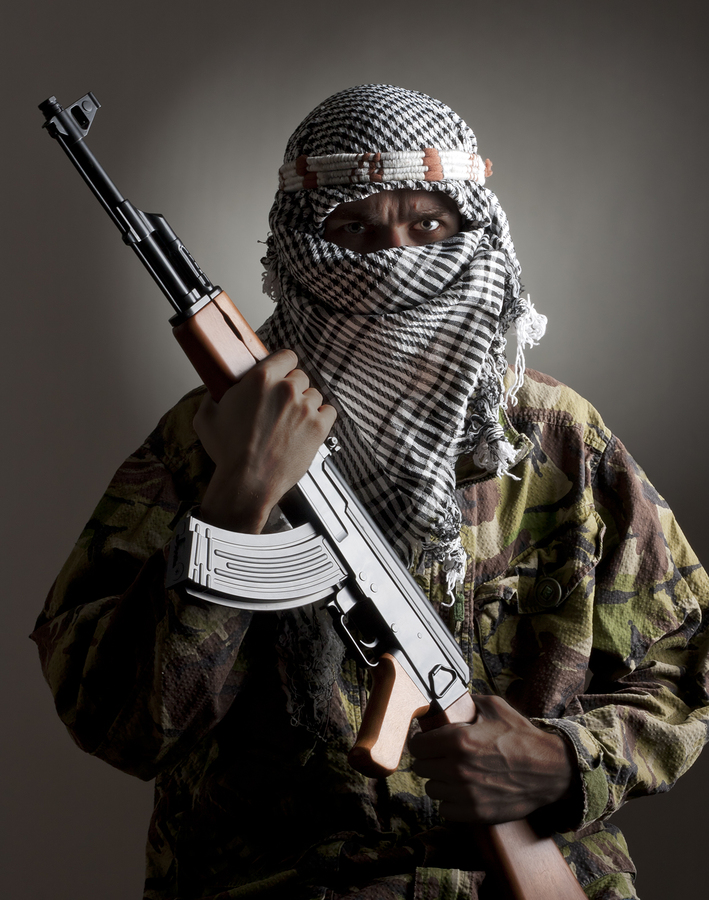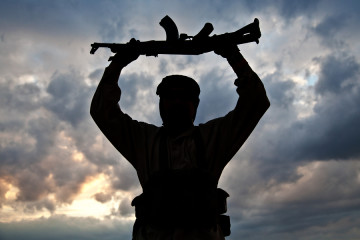Boko Haram Civilian Attacks ’Overwhelming’ Government: Buhari

©2015 Bloomberg News
O06XT76JTSEB
O06XT76JTSEB
(Bloomberg) — Nigerian President Muhammadu Buhari said the scale of bombings targeting civilians by Boko Haram is overwhelming and the intelligence service has no information about the condition or location of more than 200 schoolgirls kidnapped by the insurgents last year.
Boko Haram’s “capacity to conventionally attack institutions, whether it is the police force or barracks as they used to, including Maiduguri, has been stopped,” Buhari said in a televised press conference on Wednesday, referring to one of the largest cities in the northeast, where the insurgency started. “But their use of improvised explosive devices has assumed a proportion that has virtually overwhelmed the government,” he said
Buhari, in one of his first acts after taking office in May, moved the command center to fight the group to Maiduguri to better coordinate operations and ordered the army to defeat Boko Haram by year-end.
Boko Haram has killed thousands of people and displaced more than 1.5 million during a six-year insurgency to establish Islamic law in Africa’s largest oil producer and biggest economy. More than 80 people this week have died in suicide bombings and clashes between the army and Islamist militants in the northeast states of Borno and Adamawa.
Boko Haram’s “capacity to conventionally attack institutions, whether it is the police force or barracks as they used to, including Maiduguri, has been stopped,” Buhari said in a televised press conference on Wednesday, referring to one of the largest cities in the northeast, where the insurgency started. “But their use of improvised explosive devices has assumed a proportion that has virtually overwhelmed the government,” he said
Buhari, in one of his first acts after taking office in May, moved the command center to fight the group to Maiduguri to better coordinate operations and ordered the army to defeat Boko Haram by year-end.
Boko Haram has killed thousands of people and displaced more than 1.5 million during a six-year insurgency to establish Islamic law in Africa’s largest oil producer and biggest economy. More than 80 people this week have died in suicide bombings and clashes between the army and Islamist militants in the northeast states of Borno and Adamawa.
Missing Girls
The group’s brutal attacks on communities have forced schools and businesses to close in one of the country’s poorest regions. The militants’ abduction of more than 200 schoolgirls from their dormitories in the town of Chibok last year sparked the #BringBackOurGirls social media campaign championed by Michelle Obama and thousands of others. Most of the girls haven’t been found.
“There’s no firm intelligence where those girls physically are and what condition they are in,” said Buhari. ‘We are still keeping our options open that if a credible leadership of Boko Haram can be established and they tell us where those girls are, we are prepared to negotiate with them without any preconditions.”
On the economy, Buhari said he would need to be persuaded to back any action to devalue the naira. Last week, the leader for the first time hinted he may accept devaluation, saying the central bank is tweaking the management of foreign exchange and will introduce “some flexibility” to encourage inflows.
The currency has been all but fixed at 197-199 per dollar since early March, with the central bank curbing foreign exchange trading and introducing import controls after the naira dropped to a a record low and oil prices plunged, battering the economy. The government relies on crude exports for about two- thirds of its revenue.
“I don’t support devaluation. Personally I don’t want to,” Buhari said on Wednesday. “I need to be convinced.”
“There’s no firm intelligence where those girls physically are and what condition they are in,” said Buhari. ‘We are still keeping our options open that if a credible leadership of Boko Haram can be established and they tell us where those girls are, we are prepared to negotiate with them without any preconditions.”
On the economy, Buhari said he would need to be persuaded to back any action to devalue the naira. Last week, the leader for the first time hinted he may accept devaluation, saying the central bank is tweaking the management of foreign exchange and will introduce “some flexibility” to encourage inflows.
The currency has been all but fixed at 197-199 per dollar since early March, with the central bank curbing foreign exchange trading and introducing import controls after the naira dropped to a a record low and oil prices plunged, battering the economy. The government relies on crude exports for about two- thirds of its revenue.
“I don’t support devaluation. Personally I don’t want to,” Buhari said on Wednesday. “I need to be convinced.”
To contact the reporter on this story: Elisha Bala-Gbogbo in Abuja at ebalagbogbo@bloomberg.net To contact the editors responsible for this story: Antony Sguazzin at asguazzin@bloomberg.net Sarah McGregor, Jim Silver







No Comment